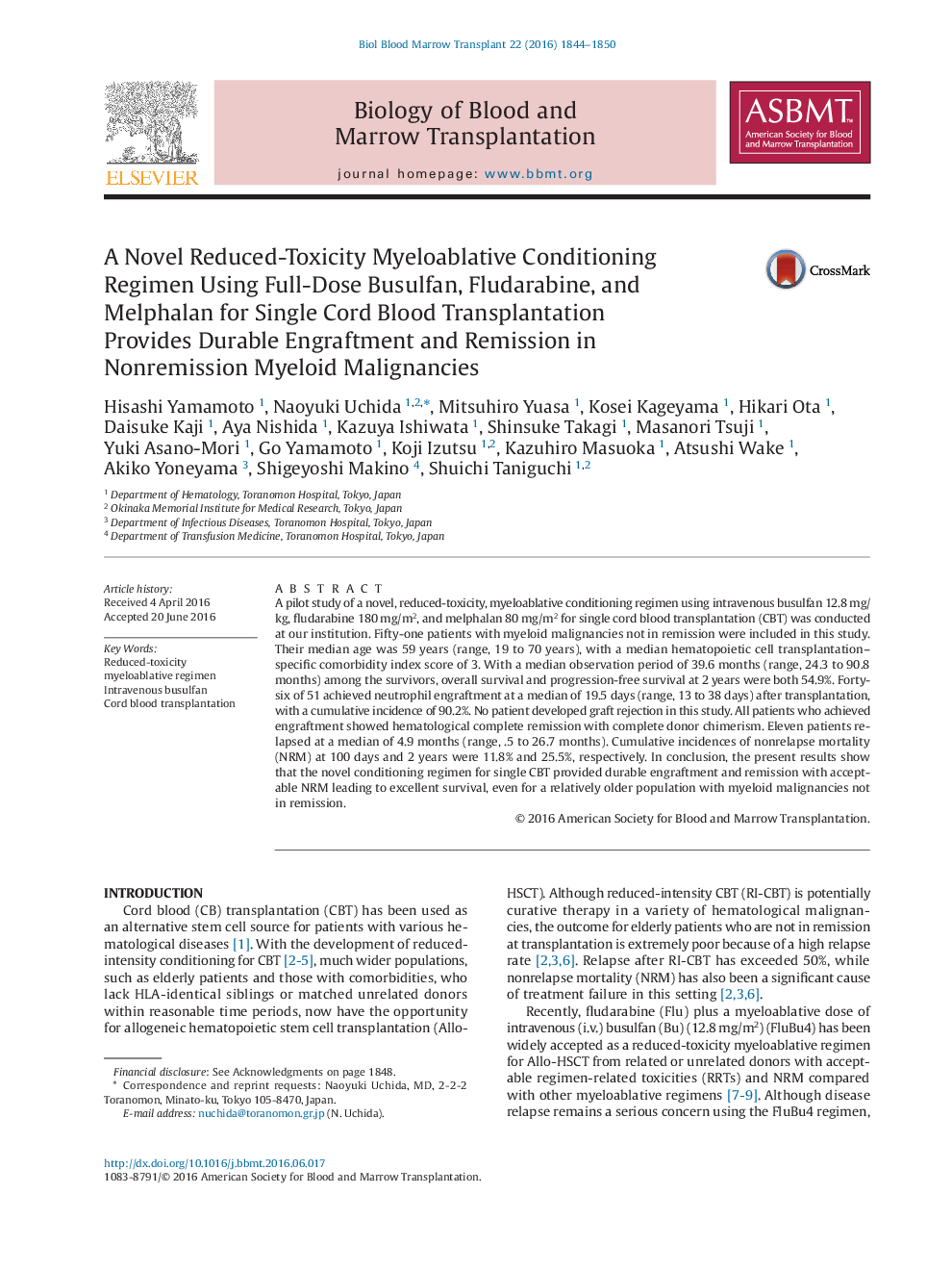| Article ID | Journal | Published Year | Pages | File Type |
|---|---|---|---|---|
| 5524556 | Biology of Blood and Marrow Transplantation | 2016 | 7 Pages |
â¢A novel myeloablative regimen in cord blood transplantation was investigated for patients with active diseasesâ¢The regimen provided reliable engraftment and durable remission with acceptable nonrelapse mortalityâ¢Overall survival and progression-free survival were both estimated as 54.9% at 2 years after transplantation
A pilot study of a novel, reduced-toxicity, myeloablative conditioning regimen using intravenous busulfan 12.8âmg/kg, fludarabine 180âmg/m2, and melphalan 80âmg/m2 for single cord blood transplantation (CBT) was conducted at our institution. Fifty-one patients with myeloid malignancies not in remission were included in this study. Their median age was 59 years (range, 19 to 70 years), with a median hematopoietic cell transplantation-specific comorbidity index score of 3. With a median observation period of 39.6 months (range, 24.3 to 90.8 months) among the survivors, overall survival and progression-free survival at 2 years were both 54.9%. Forty-six of 51 achieved neutrophil engraftment at a median of 19.5 days (range, 13 to 38 days) after transplantation, with a cumulative incidence of 90.2%. No patient developed graft rejection in this study. All patients who achieved engraftment showed hematological complete remission with complete donor chimerism. Eleven patients relapsed at a median of 4.9 months (range, .5 to 26.7 months). Cumulative incidences of nonrelapse mortality (NRM) at 100 days and 2 years were 11.8% and 25.5%, respectively. In conclusion, the present results show that the novel conditioning regimen for single CBT provided durable engraftment and remission with acceptable NRM leading to excellent survival, even for a relatively older population with myeloid malignancies not in remission.
